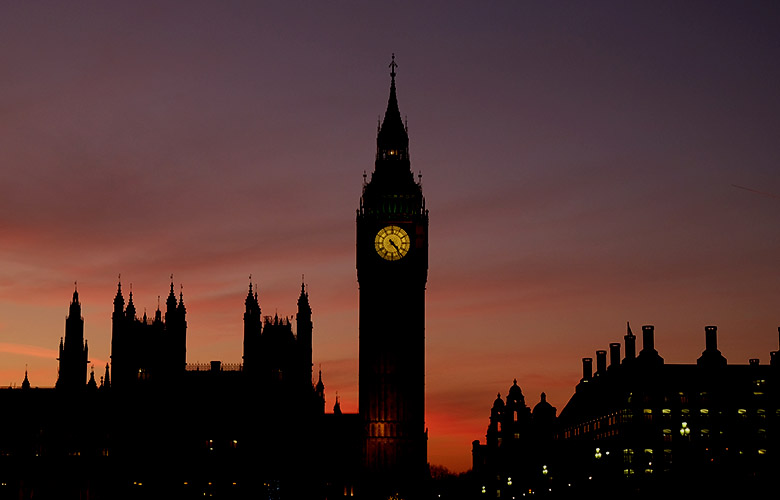
LegalAliens is a London-based ensemble theatre company dedicated to producing original translations of contemporary European plays, particularly those which have not already been staged in the UK. Founded by Italian performer/producer Lara Parmiani and American director Becka McFadden, the company views translation as a collaborative process, and works to demystify European theatre, “getting rid of that label of inaccessibility and intellectualism it is often associated with”.
Head for Heights Theatre Company producer and playwright Karen Morash spoke to Lara Parmiani about their production Poker Face, by Czech writer Petr Kolečko, and the challenges of and opportunities for presenting work in translation in Britain.
As people who aren’t native to Britain, we felt like we were outsiders in a way, and wanted to see how we could turn something that could be seen as an obstacle into something which could be a unique selling point. We have access to different cultures [McFadden is also a specialist in Czech theatre] and rather than trying to pretend to be British, to just fit in, we realized that there was a lot of other things that we could do. Because of the immense culture and history of British theatre, and the great focus on new writing, as well as theatre being produced from other English-speaking countries, there are some gaps which aren’t being filled. When you go to countries where they speak languages that are less widely spoken, you have access to a bigger variety of plays, so we wanted to produce plays in the UK in their first translation, which haven’t been seen here before. We can bring something different, rather than trying to blend in and be British.
Our choices are often led by the languages we speak ourselves, but with everything going on with Europe, we feel it’s important to explore work from countries that are a bit on the edge, and that people know a bit less about, but which actually play quite a central role in politics.
On a personal level, it’s not accidental because I have always been political. I come from a very specific place in Italy that is very socialist, and there is a strong interest in politics in the community. But when we started the company, we didn’t necessarily want to be political, even though the moment you talk about society, and even the individual in society, it has to be political. And in the end, it felt like we had to face it. Given all the talk surrounding Europe at the moment, it’s almost impossible to not be political.
I like plays that are about a specific place, and touch on themes that affect societies everywhere. I’m not interested in characters who don’t engage with the culture around them. I like stories that involve people speaking beyond that which is just personal to them, and engaging in bigger issues.
I think it’s mainly getting venues to programme it. Once you have the venue, people come. I would understand the issues programming work in its original language, as obviously that is a niche market, but venues, particularly in London, are so risk-averse. What makes me sad is that the fringe used to be the place where you would go to try something new, to experiment, but now people just want to produce a nearly-West End show. You see a lot of safe productions, where if they had more money they could be at the Ambassador Theatre. So you don’t get to see so much that is really daring, that is really new. I understand that this happens because everything is so expensive and rents are sky-high. So, with translation, it’s really about venues taking a risk and giving us three weeks on a box office split, rather than charging a large amount to rent the space, with the companies only able to charge a small amount for tickets.
It would be wonderful to have a venue in London dedicated to theatre in translation, which helps companies to produce work.
We were involved in a series of rehearsed readings in 2013 with Theatre LETÍ in Prague. They selected three plays that they liked and did a basic translation into English and asked us to present them as rehearsed readings at RADA, to test them out for British audiences. The audience seemed to really like Poker Face, perhaps because it has different levels. It has family drama, it has fun, it has a political figure in the form of Václav Havel, so we decided to do it as our next production.
And when we read it again, we found more reasons to do it. It’s a very metaphorical play – the woman I play is representative of change in the Czech Republic, and in general. She is a woman who started as a revolutionary in 1989 in the Velvet Revolution and you see her in 2011 as a completely cynical and ruthless millionaire poker player. It’s about all those ideals that used to play such a big role in politics and society, freedom, truth and love, that after the revolution and the fall of the Berlin Wall, are now progressively being swapped with money and celebrity, so you have your Donald Trumps and Silvio Berlusconi, and just recently in the Czech Republic they elected a billionaire as prime minister. It’s also a story about the life of this woman who was obsessed with Havel and had sex with him, but when she gets pregnant he abandons her, so it talks about power, and powerful men exploiting young women and getting away with it. It touches on themes which are now quite hot.
Also, it’s a production that really plays with theatre and genres. It’s a bit bonkers. If someone expects some kind of serious political drama, it’s not. In a way, it’s very Eastern European in its aesthetic in that it’s not completely linear, even in its style. It mixes a lot of things.
I think we underestimate audiences. When we presented it before [Poker Face previously ran at the King’s Head Theatre, London] people seemed to really embrace the weird parts. I don’t know if it’s because they know it’s not an English play that they can go with it a bit more easily. The way it is written has a certain coherence to it, even though it’s a bit mad, and the main story is a very human story.
Eva is also a dramaturg, and is doing a PhD on translation as collaboration. She was invaluable in giving some very specific context and providing information on rituals, movements and songs, helping us to get into the rhythm of the Czech language. She explained about the directness of the language; there is none of the “would you, could you” type of politeness. Czech women are very straightforward to the point that some tourists think they are rude because they are unused to this way of speaking. It is fascinating to see how languages come with a type of personality.
Eva was always in the room with us, throughout rehearsals. She initially provided a neutral translation, and then, working with the actors, she would adjust it to try to find a way that would make sense, and try to find the correct rhythm to correspond to the Czech.
She translated using the skills of a dramaturg, and I think often the translator does act as a sort of dramaturg, because you have to make some very specific dramatic choices. There is no such thing as a completely neutral translation.
No matter who we work with in the future, I always want to work with a translator who is happy to be in the room with the actors, changing text as we go along, and finding the right rhythm, and version of the text that works on stage.
Poker Face runs at the Cockpit Theatre, London, 12 and 14 November, as part of the Voila! Europe Festival 2017.
Follow LegalAliens on Twitter
Lighting Programmer: Let’s Talk About Their Rights
4 Things To Do Before You Organise An Event
Join TheatreArtLife to access unlimited articles, our global career center, discussion forums, and professional development resource guide. Your investment will help us continue to ignite connections across the globe in live entertainment and build this community for industry professionals. Learn more about our subscription plans.
Love to write or have something to say? Become a contributor with TheatreArtLife. Join our community of industry leaders working in artistic, creative, and technical roles across the globe. Visit our CONTRIBUTE page to learn more or submit an article.


Karen Morash is in the final stages of a practice-as-research PhD at Goldsmiths, University of London, with a focus on collaborative playwriting. Karen is a producer for Head for Heights and a playwright.
Read Full Profile© 2021 TheatreArtLife. All rights reserved.

Thank you so much for reading, but you have now reached your free article limit for this month.
Our contributors are currently writing more articles for you to enjoy.
To keep reading, all you have to do is become a subscriber and then you can read unlimited articles anytime.
Your investment will help us continue to ignite connections across the globe in live entertainment and build this community for industry professionals.